TLDR Here's how you make sure that your tweets are seen and reach the maximum number of people.
Today we’ll have a closer look at the 4 stages of a successful inbound marketing campaign and how top performers such as Salesforce, Evernote and 37Signals (Basecamp) execute them. You will not only learn what inbound marketing is all about but also how to either improve your existing campaign or get started in the first place.
Let’s get you started:
1. Attract New Leads
TURN STRANGERS INTO VISITORS
It’s no secret - If your company is able to generate more relevant leads, you generate more business and increase your revenue. Your goal should be to generate as many relevant leads as possible.
What are relevant leads? Consumers or companies that are most likely to purchase your product.
1.1 Create A Great Website
Your website is the most important tool when it comes to lead generation.
- Make your website as easy to navigate as possible
- Place your most important services on the front-page
- Avoid going into too much detail on the first page
Evernote did an incredible job at simplifying their homepage. All key elements are there:
- A quick introduction (visual, simple, easy to understand)
- A sign-up / download button to obtain the product
- Pricing information (I find this to be absolutely critical for most SAAS vendors)
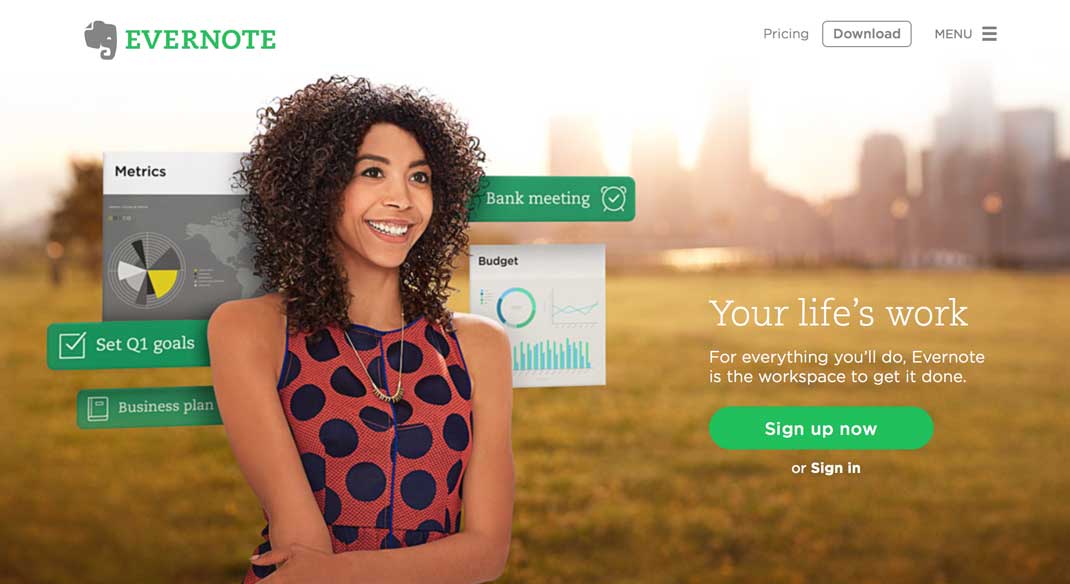
1.2 Start Blogging
A great website should be complemented with a blog, ideally on the same domain (yourbusiness.com/blog). Here you can publish relevant, interesting content that is worth sharing.
- Publish content worth sharing
- Focus on a specific topic / area
- Invite guest writers
- Try not to sell. Nobody likes to be sold to.
- Use smart call to action
Groove does a great job at not talking about themselves. If they do, you can learn something from it anyway - Totally worth reading, especially if you run or plan to run your own startup: Visit the Groove Blog.
1.3 Keep Keywords In Mind
Use keywords and phrases that your prospects use to find you or a close competitor on Google. Don’t hesitate to ask your customers how they found you and listen carefully what sort of problems they are looking to solve - there’s something to write about right there!
1.3.1 Write For People
SEO can play an important role in your content creation strategy but at the end of the day, the stuff you publish will be read and shared by real people. Nobody likes to share content that’s written for a search engine.
1.4 Publish Your Content
Share your content to maximize reach. Concentrate on 1-2 social networks where your prospects spend most of their time. Do not try to do everything, everywhere. It’s only natural that one network will work better for you than another.
1.4.1 Be Personal
Salesforce sells enterprise grade CRM software subscriptions. Still, they don’t fail to give their product a personal touch. After all, they are selling to people and people want to talk and interact with people - not with companies.
Their LinkedIn page does a great job at adding that personal touch.
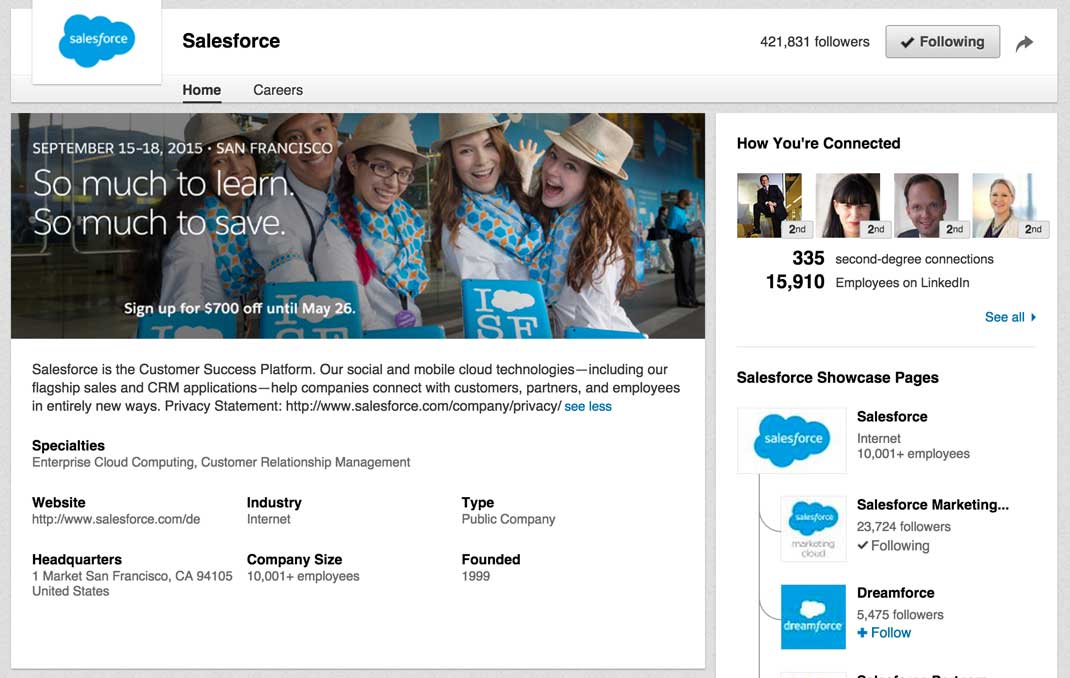
1.4.2 Schedule for Highest Impact
If you want to reach a larger audience, you need to schedule your posts. We’ve recently written about How To Schedule Posts on Twitter for Maximum Impact.
2. Convert Leads
TURN VISITORS INTO LEADS
Now that people are on your website, you need to prompt them to take action. Sure, you can wait for them to get in touch with you but a pro-active approach has proven to be much more effective at converting visitors into leads.
Here’s what you need:
2.1 Call to Action
Calls to action are buttons or links that encourage your visitors to take action. Make them stand out - do not hesitate to experiment with the design, wording or placement.
It’s important that you design your call to action around your visitors needs. Here’s how Evernote differentiates between a personal account and one designed around business needs:
Headline: 8 Tips to Master a More Paperless Life With Evernote

Headline: Keep Your Small Business Organized With Evernote

2.2 Landing Pages
When a visitor clicks on a call to action button or link, they should be taken to a landing page. Your landing page should focus on a single product or service - your goal is, to collect your visitor’s details.
37Signals does a great job on the landing page for Basecamp. All key elements are there:
- Social-proof: “Just last week, 4,868 companies signed up for Basecamp”
- Pricing: “Prices start at just $20/month”
- Reassurance: “60-day unlimited-use free trial”
- A really short form to sign-up (+ no credit card required)
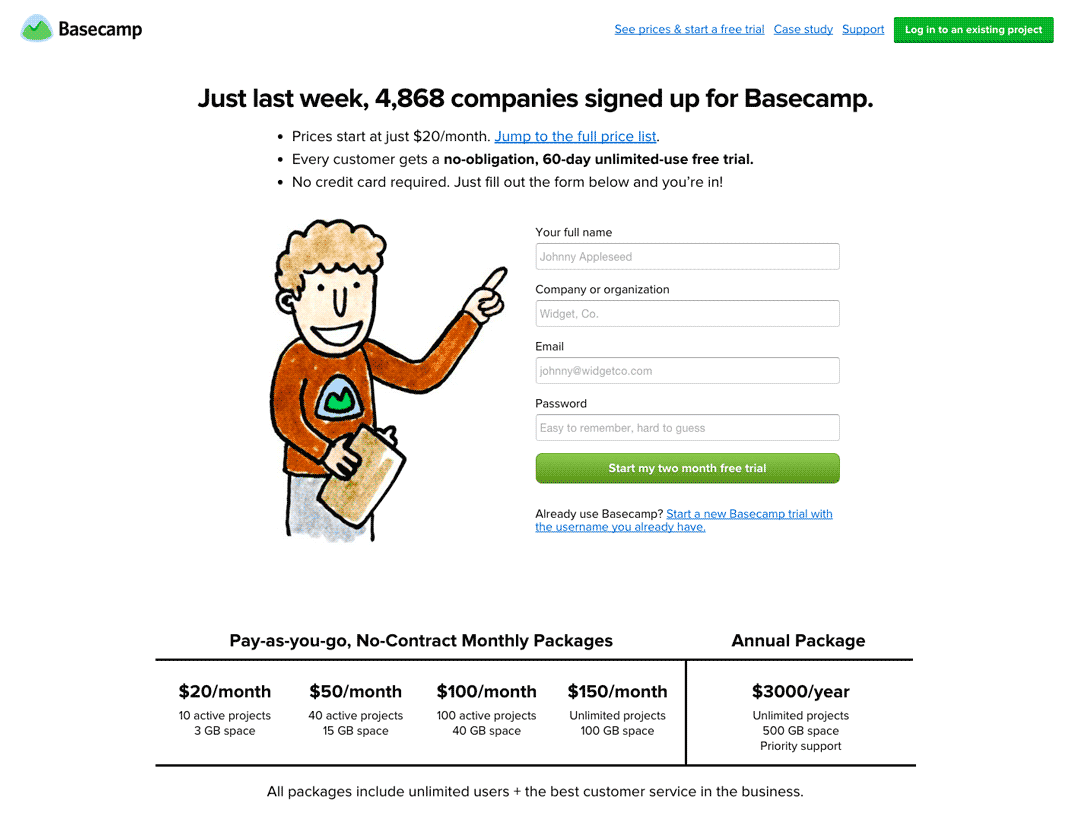
2.3 Forms
In order for visitors to become leads, they must fill out a form and submit their information. Don’t overwhelm them with a long list of questions but keep it simple and collect only what you really need to get the process rolling.
Salesforce recently updated their landing page to feature a social-sign-up. I’ve always found their sign-up form too be to long. This is great way to get people started with Salesforce - faster.
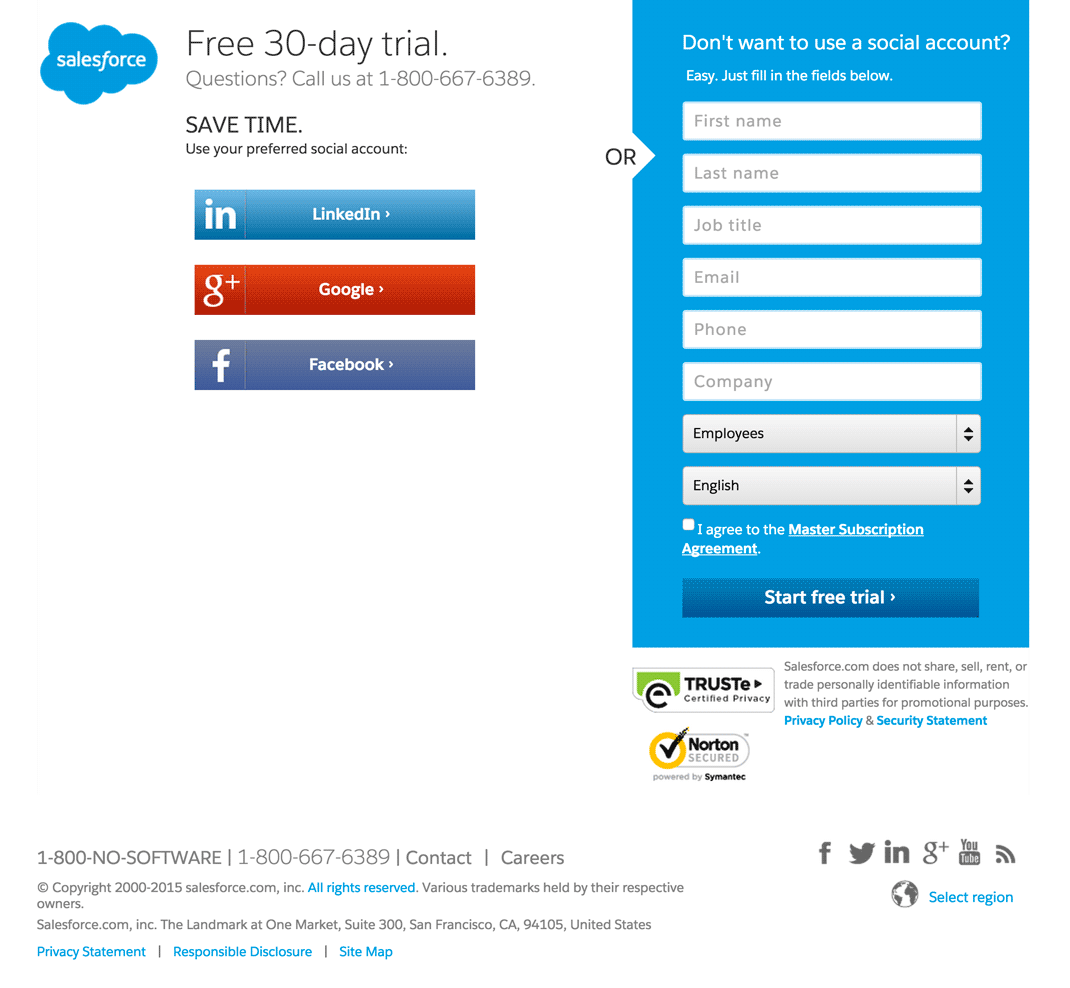
3. Close The Deal
TURN LEADS INTO PAYING CUSTOMERS
If you’re selling a complex product or service, your lead may require additional nurturing before they are ready to pull the trigger - we’ll talk more about lead nurturing and prospecting next week. Skip ahead to 4. Delight Customer.
If you’re a SAAS business or online store, read on.
3.1 Email (DRIP Marketing)
If your lead is not ready to become a customer, a series of useful, educational emails can builds trust and help the lead become ready to buy.
Thank everyone for signing up.
Here’s a great example of an online store in the UK. After your initial sign-up, they send you a thank you note with a few interesting details:
- The imply that you will be the first to know about their latest news (Isn’t that great?)
- There are over 2000 designers to chose from
- The offer free returns with pick-up service (convenient!)
The obvious goal is to get people back online: SHOP WOMAN / SHOP MEN
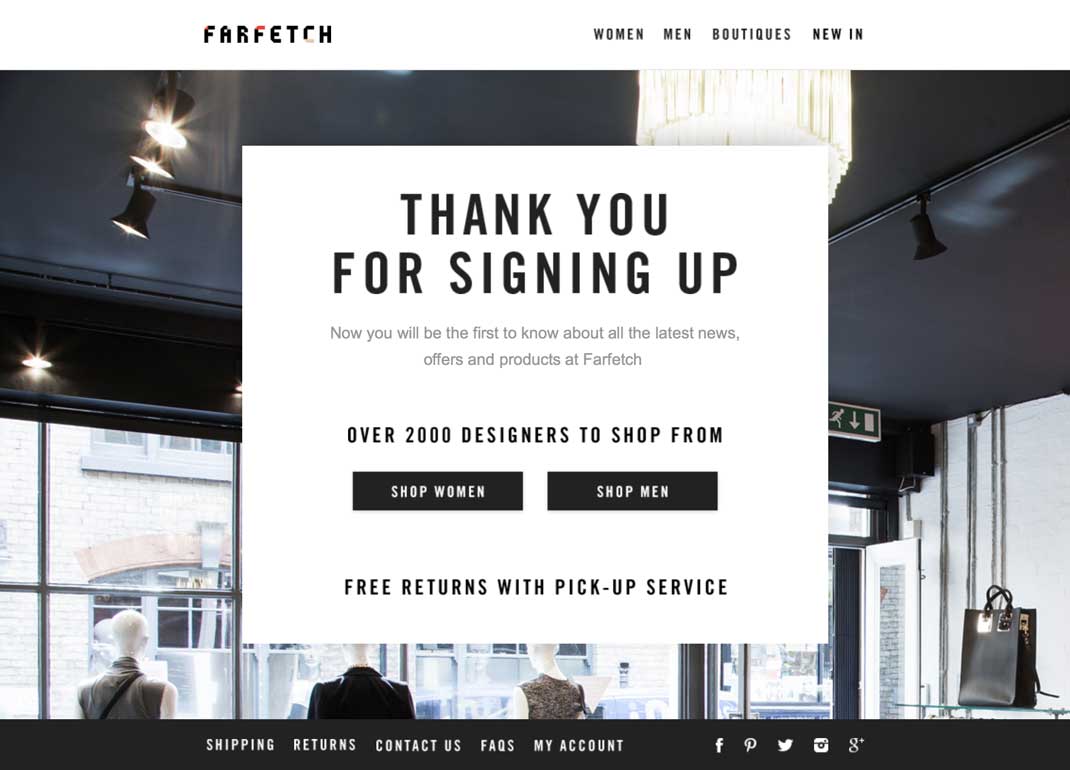
If you’ve selected a few items but left the site prematurely, you will receive an email reminder. What’s really interesting is, that they not only offer free shipping on the two items you’ve selected previously but they also add some urgency - 2 Days Only. That’s not it - they also re-assure you that they do free global returns. You have nothing to lose.
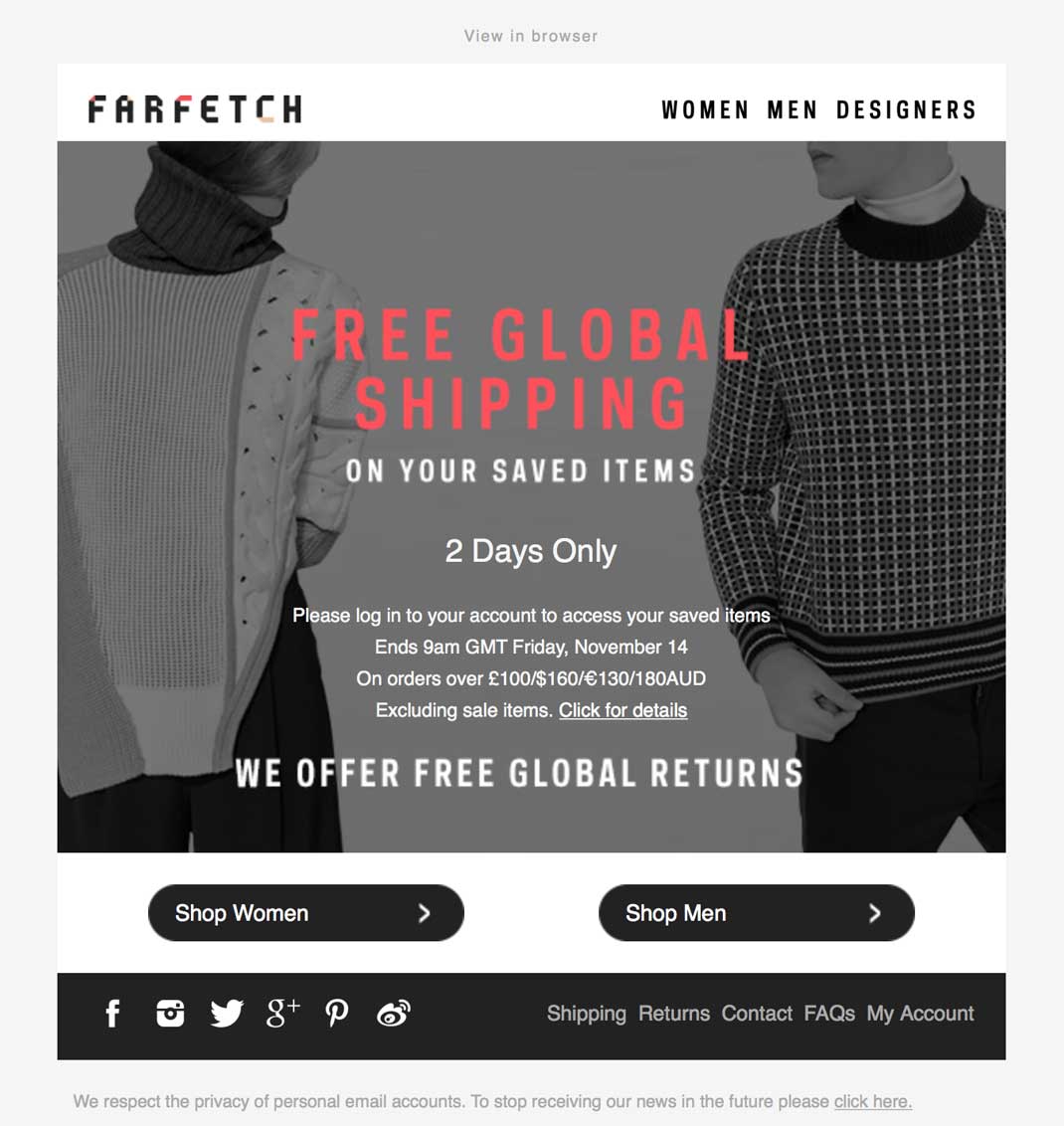
It’s free shipping and returns for online stores and free trials or a 30 or even 60 day money back guarantee for SAAS businesses.
3.2 CRM
Your CRM plays a very important role on your inbound marketing journey. Here you keep track of all your contacts, past interactions and upcoming events to get in touch with the right person, at the right time.
Tip: Integrate your website and CRM to automatically add leads to your sales funnel.
4. Delight Customer
TURN CUSTOMERS INTO PROMOTERS
Your inbound journey doesn’t end after you’ve closed the deal. After all, a happy customer may not only send more business your way but will also talk about you - to other potential customers.
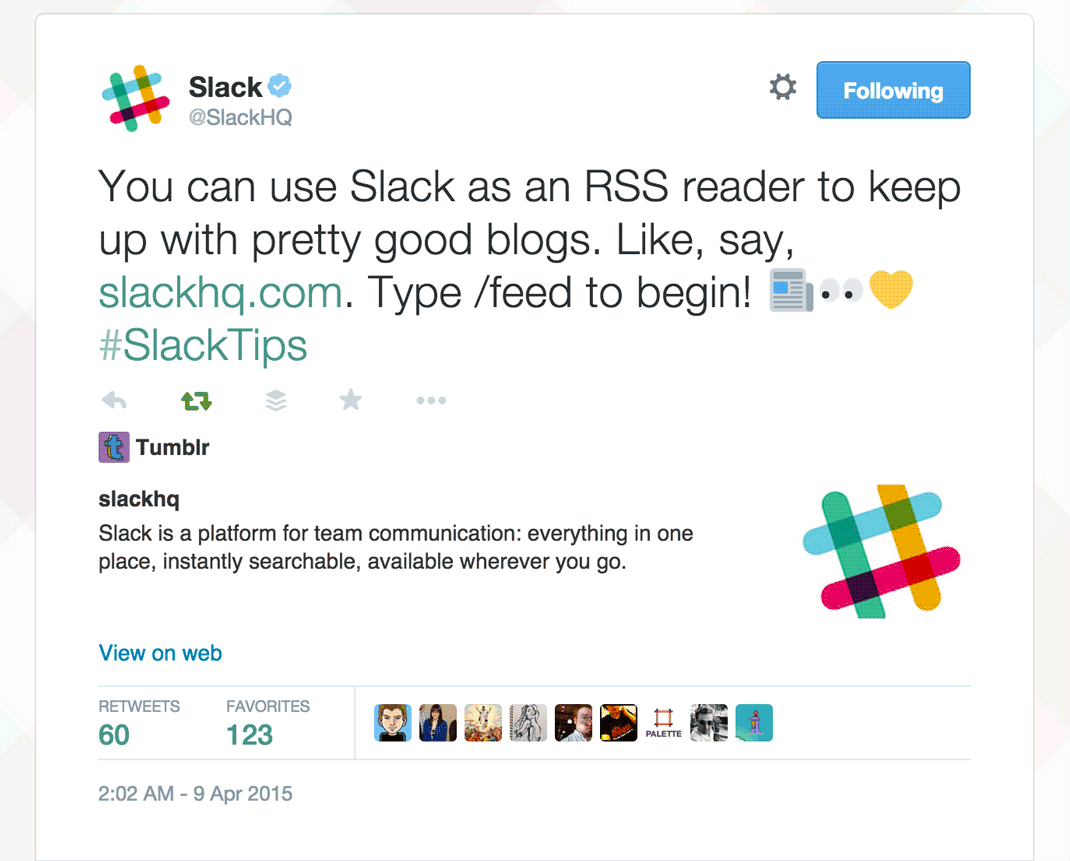
Want to receive a free, no-obligation, inbound marketing report? Request now.
